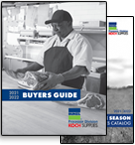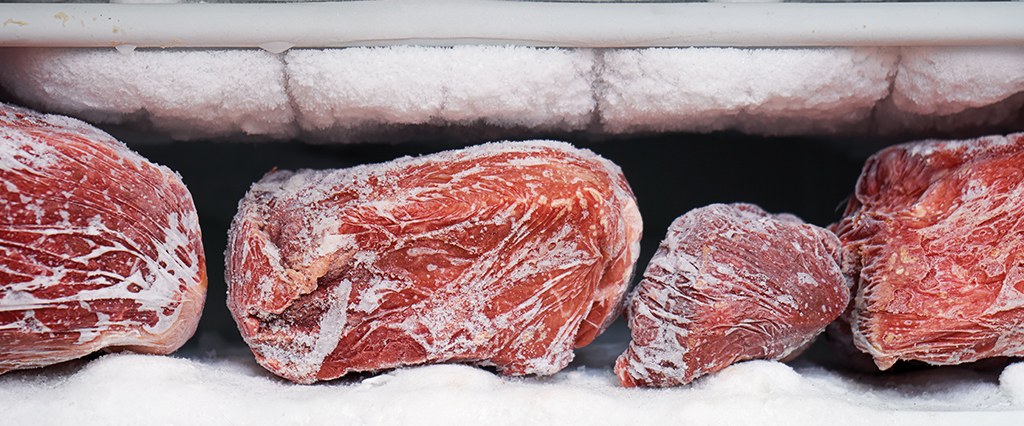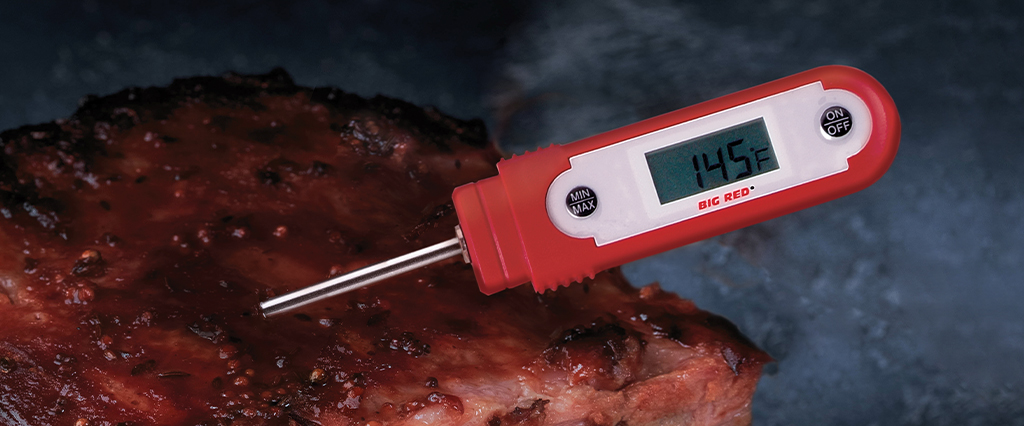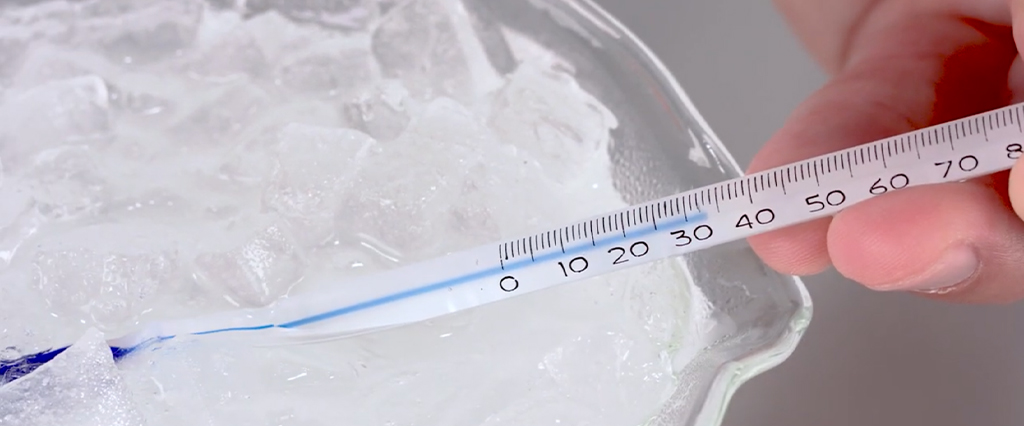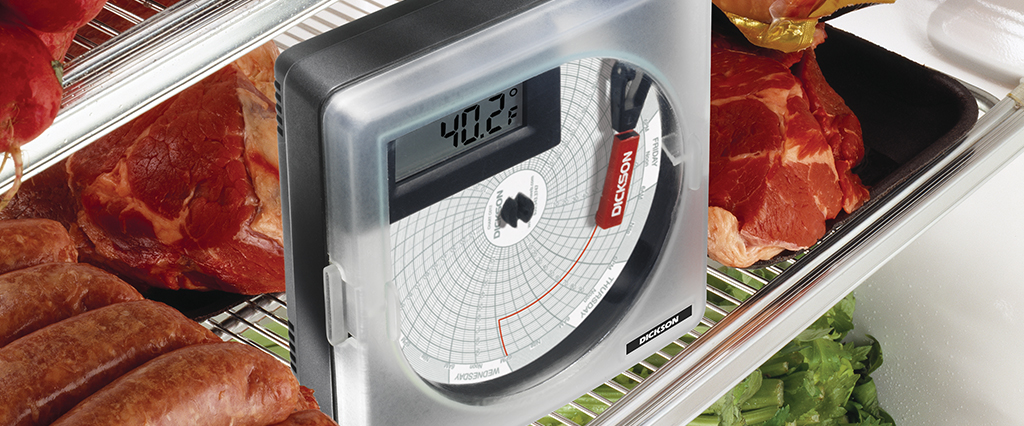
How to Pick the Right Cold Thermometer
Thermometers are an essential tool for food safety in meat processing. Because raw meat products are quickly prone to bacterial growth if allowed to sit in temperatures above 40°F (4°C), cold thermometers are essential for ensuring your products maintain a safe temperature throughout processing and storage.
Types of Cold Thermometers
Cold thermometers are not a one-size-fits-all tool, as they come in a variety of types to meet different needs. To cover all of your bases as a meat processing facility or butcher shop, you’ll likely need to stock up on a few different types of cold thermometers in order to keep temperatures in check at every stage of the production process.
Analog Thermometers
To maintain safe cold storage temperatures in your walk-in refrigerator or freezer, analog thermometers should be installed on the wall to show the current temperature in real-time. Routinely checking these thermometers to ensure storage temperatures are low enough to prevent bacterial growth but high enough to not freeze your meat products is important for quality control in any meat processing facility.
Check out this Analog Thermometer from the BPD Catalog: The High-Low Thermometer
This high-low thermometer not only shows the present temperature reading but also records maximum and minimum temperatures for any period of time. This extra feature can help you track any consistency issues with cold storage temperatures.
Dial Thermometers
Dial thermometers are the classic stemmed thermometers that you most likely have in your kitchen. The stem is inserted into the meat or other food product to check internal temperatures, while the dial shows the current temperature. What they lack in precision dial thermometers make up for in ease of use and affordability. Dial thermometers are lightweight, portable, work without any battery or electrical power source, and are typically the most inexpensive thermometers available.
Check out this Dial Thermometer from the BPD Catalog: HACCP Approved Dial Pocket Thermometer
This dial thermometer has high-visibility dial graphics to make reading as easy as possible and is hermetically sealed to prevent contamination. This three-point calibrated thermometer boasts both HACCP and NSF approval ratings.
Digital Thermometers
Digital thermometers are popular for their quick and easy use. Digital thermometers come in both pocket and handheld varieties, with the larger handheld thermometers offering even more precision through the use of thermocouple probes.
Check out this Digital Thermometer from the BPD Catalog: Thermotrace Combo Thermometer
What makes this digital thermometer unique is that it offers two options for checking temperatures. The infrared function allows for quick no-touch readings, whereas the probe can be used to get a more thorough reading of internal meat temperatures.
Recording Thermometers
The ideal choice for food processing environments, recording thermometers fill a similar role to analog thermometers but with even more long-term data. Recording thermometers typically have a digital display to show the current temperature and a changeable, circular chart to record temperature changes over multiple days.
Check out this Recording Thermometer from the BPD Catalog: 8-Inch Temperature Chart Recorder
This oversized recording thermometer offers a larger chart to make reading the measurements easier, with a temperature accuracy of +/-1.8°F (1°C). What makes this thermometer a must-have for any cold storage area, though, is the audio and visual alarm that alerts you immediately when temperatures reach high or low limits.
Five Things to Look For in a Cold Thermometer
Because an effective and trustworthy thermometer is so important for safe meat processing, you should know exactly what you’re looking for when browsing the many thermometer options on the market. Here are five things to look for in a high-quality thermometer for your meat processing company:
1. Accuracy
Accuracy is a top priority when choosing a thermometer! If your thermometer is not showing accurate readings, you may be storing food at unsafe temperatures without knowing it. Thermometers are held to very high standards of accuracy before they are marketed to consumers, so any sold by a reliable processing retailer like Bunzl Processor Division will provide good accuracy.
All thermometers will eventually drift, or lose their accuracy over time. This happens as sensors and probes are exposed to different ambient temperatures and require thermometers to be replaced or recalibrated annually. It’s wise to invest in a calibration device to keep your thermometers measuring accurately.
2. Reliability
A thermometer should be able to reproduce the same results every time you use it. For example, if a thermometer records a temperature of 34 degrees in one instance and then shows it as 38 immediately after, it’s not producing accurate results. A thermometer that struggles with reliability may need to be left to rest longer between uses, making it less than ideal as a functional cold thermometer.
3. Precision
How precise your thermometer can get is a major benefit for getting highly detailed readings. This is where dial thermometers tend to fall off, as they cannot demonstrate exact decimal-point measurements like a digital thermometer can.
4. Temperature Range
The greater a thermometer’s temperature range, the greater your variety of usability. Even so, you simply need to make sure the thermometer covers a large enough range of temperatures to manage your anticipated needs. Some thermometers—like recording thermometers—may have options to set temperature ranges according to your needs, whereas others offer a larger range at all times.
5. Speed
The speed at which your thermometer takes and displays a temperature is the speed at which you can get the needed information and move on with your meat processing procedures, and every second wasted standing around while a thermometer is busy searching for the temperature is precious time that could be used elsewhere!
Gauge the Right Thermometer with Bunzl Processor Division
A cold thermometer may seem like a very minor tool compared to all of the highly complex equipment and tools you require as a meat processor, but it is among the most important for producing a trustworthy, safe food product! That’s why Bunzl Processor Division does all the heavy lifting of researching thermometers for you by offering only the best cold thermometers on the market. Shop our thermometers here or contact us to learn more about finding the right equipment for your processing needs!


